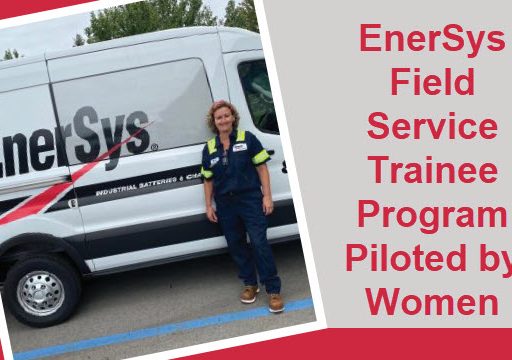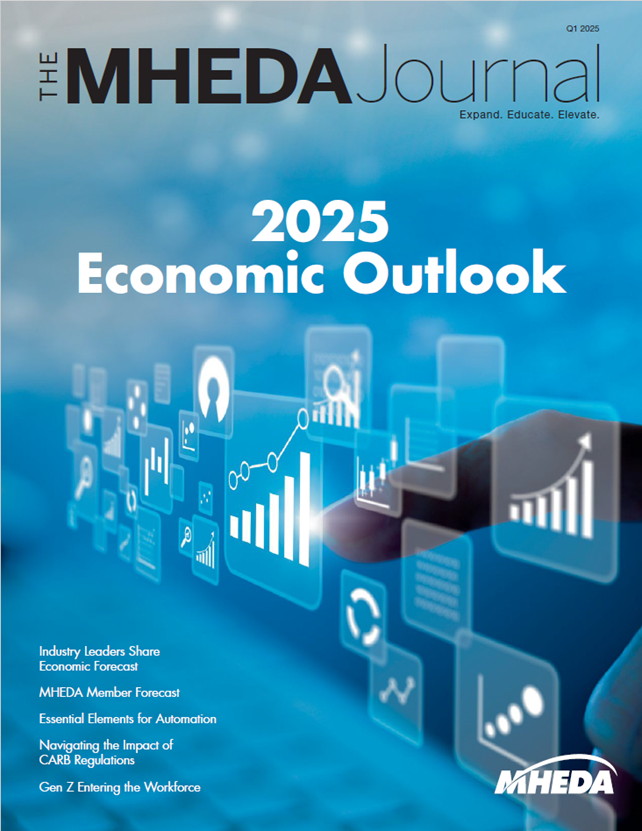EnerSys Field Service Trainee Program Piloted by Women
By Nicole Needles
The EnerSys Field Service Trainee Program is a six- to nine-month program that prepares participants to be effective field service technicians and become EnerSys employees. The program, initially geared towards women but now open to all applicants, has already showcased its success in creating a more inclusive workforce. The charge is still being led by the women of EnerSys, breaking ground in an industry where women have been underrepresented.
Originating from EnerSys’s recruitment and HR departments, the program emerged as a response to the glaring gender disparity in field service roles. The industry, predominantly occupied by men, prompted the company to explore initiatives that would encourage more women to participate in hands-on positions. While the program has now evolved beyond gender-specific recruitment, it continues to prioritize diversity and inclusivity, actively encouraging women to apply.
Field service involves technicians servicing and repairing products directly at customer locations which is often perceived as a more “blue-collar” profession, standing in contrast to corporate positions. The program focuses on bridging the gender gap in this sector by providing opportunities for women to thrive in roles traditionally dominated by men.
The women leading the charge of the program, Stephanie Bayle and Stephenie Rahn – District Service Managers with EnerSys – express their appreciation for the corporate backing, emphasizing the importance of reaching out to individuals who may not have considered such roles within the company. Bayle and Rahn stress the significance of challenging preconceptions and encouraging individuals to explore opportunities outside their perceived qualifications. They were chosen to lead the program because of how exemplary their teams are.
“I was extremely proud of our teams. They embraced it,” said Bayle.
One of the key elements of the program is the mentorship-style job training it offers. Trainees benefit from one-on-one interactions with experienced technicians, allowing for a more personalized and thorough learning experience. This approach, in contrast to traditional training methods, enables a slower, more focused development of skills, ensuring trainees are well prepared for their roles in the field.
“Whether it’s a woman or a man in the position, our service center techs and our field service techs really want to help them succeed. It’s a neat process and everybody pitches in,” said Rahn.
The mentorship program has proven successful, fostering a positive and supportive environment for trainees, irrespective of their gender. The trainees, particularly women, bring a different perspective to the field, showcasing qualities like attention to detail and thorough note-taking. The supportive atmosphere created by the mentorship approach has contributed to the success of trainees and the overall cohesion within the workforce.
As the program evolves to fit organizational needs, EnerSys plans to expand it across the United States as an apprentice-style initiative. The ultimate goal is to encourage more women to apply for field service positions and provide them with on-the-job training during the program. Successful completion of the program opens the door for permanent employment within the company, with the hope that trainees will progress to become full-time field service representatives.
“The goal is to encourage more women to apply for our field service position and provide them with on-the-job training during that six- to nine-month program. And then once that program is complete, give them the opportunity to be full-time. Once we overcome the mountain of getting women in the field, it will become more of a norm,” said Bayle.
EnerSys envisions a future where diversity in the field service sector becomes standard. By breaking down barriers and creating opportunities for underrepresented individuals, the Field Service Trainee Program serves as a beacon of change in an industry ready for transformation. As the program expands, its impact could extend beyond national borders, influencing the global landscape of field service roles.




